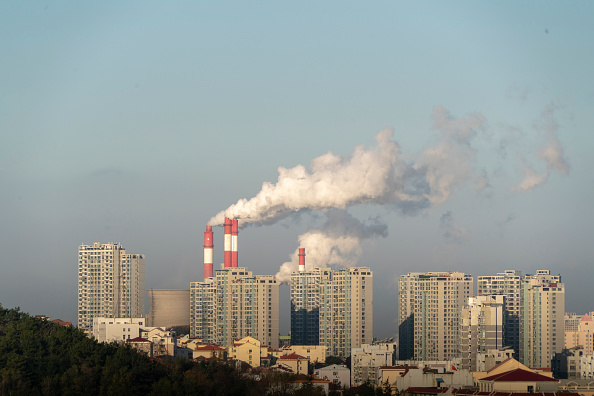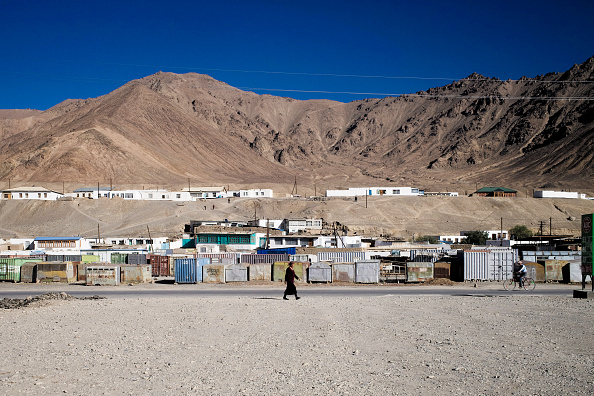
 Existential Threats
Existential ThreatsIn a letter to President Biden, progressives in the United States voiced concerns that competition between China and the U.S. will jeopardize climate cooperation. The letter, signed by over 40 energy and environmentalist organizations across the country, including the Sunrise Movement and the Union of Concerned Scientists, urged the Biden administration to forgo "the dominant antagonistic approach to U.S.-China relations and instead prioritize multilateralism, diplomacy, and cooperation with China to address the existential threat that is the climate crisis."
While China is the world's largest greenhouse gases emitter, the United States "is the biggest carbon polluter in history — responsible for a staggering one quarter of all emissions since the start of the Industrial Revolution," the letter continues. Climate change remains one of the few areas both China and the United States can agree on, with the two countries recently putting out a rare joint statement earlier this year. Read more on climate cooperation in Start With Climate Change, from He Yafei, Former Vice Minister of Foreign Affairs.
But toning down tensions seems to be a tall order, even in the energy and environmental sector. Ambassador Robert Wood, U.S. envoy to the Conference on Disarmament, warned this week that China may be interested in developing "nuclear-powered underwater drones and nuclear-powered cruise missiles." Woods emphasized that while neither China nor the United States currently have the capacity to develop such weapons, he acknowledged China's "upward trajectory" in building out its weapons program.
 Tech-tonic Shifts
Tech-tonic ShiftsChinese ridesharing app Didi, hailed as 'China's Uber,' was sent into crisis mode this week, after Chinese officials pulled their app from mobile stores, citing security concerns with the firm's practices. Shares of the tech-giant tumbled amid the turmoil, including a 20% drop on the NYSE.
Didi's American IPO late last month occurred unusually fast, coming after a whirlwind funding spree of $4.4 billion. Despite the successful run for a Chinese tech property, government watchdogs had warned Didi against launching their IPO in the U.S., fearing that the company had not prepared their data catalogs for increased public exposure - especially from abroad. But without an explicit order to halt the IPO, Didi went ahead last week. The sudden move could be seen as a punitive measure by Chinese officials.
Another app facing troubles this week is WeChat, China's full-service social media app. WeChat deleted a score of LGBTQ accounts run by university students and NGO groups, stirring up fears that a widespread crackdown may be coming for queer online content. The accounts were wiped without warning, locking out account holders with a notice that WeChat's rules had been violated on their profiles.
 Stepping into the Void
Stepping into the VoidUnited States President Joe Biden has pledged to withdraw U.S. forces from Afghanistan by August 31, and with 90% of troops already having departed, China faces new challenges in the region. While China maintains its policy of "non-interference," Beijing is currently pursuing talks with the Taliban in efforts to help stabilize Afghanistan. Details of the talks have yet to be disclosed, but diplomats from China and the U.S. noted that "crucial aspects of a broad strategy were taking shape," which could possibly include efforts in rebuilding Afghanistan's infrastructure.
China is also strengthening its cooperation with Pakistan to contain Afghanistan's security risks. "China and Pakistan need to defend regional peace together. Problems in Afghanistan are practical challenges that China and Pakistan both face," said Chinese Foreign Minister Wang Yi. Wang also acknowledged Beijing's interest in protecting existing Belt and Road projects, noting that stability in the region would benefit cargo flow between China and Eurasia.
Prepared by China-US Focus editorial teams in Hong Kong and New York, this weekly newsletter offers you snap shots of latest trends and developments emerging from China every week, while adding a dose of historical perspective.
- 2021-07-01 Centenary Celebrations
- 2021-06-25 Critical Crossroads
- 2021-06-18 Part of the Club
- 2021-06-11 Retaliatory Legislation
- 2021-06-04 "Defanging" Diplomacy
- 2021-05-28 The End of an Era?
- 2021-05-21 One Step Forward, One Step Back
- 2021-05-14 Drifting Trade Ties
- 2021-05-07 Time to Talk
- 2021-04-30 Academic Pandemic
- 2021-04-23 Carbon Cutting
- 2021-04-16 A Hopeful Climate
- 2021-04-09 Technological Frontiers
- 2021-04-02 Back to Basics
- 2021-03-26 The Biden Era
- 2021-03-19 “A Strong Smell of Gunpowder and Drama”
- 2021-03-12 Bridging the Divide
- 2021-03-05 A Tale of Two AI Superpowers
- 2021-02-26 Changing of the Guard
- 2021-02-20 Collective Approaches